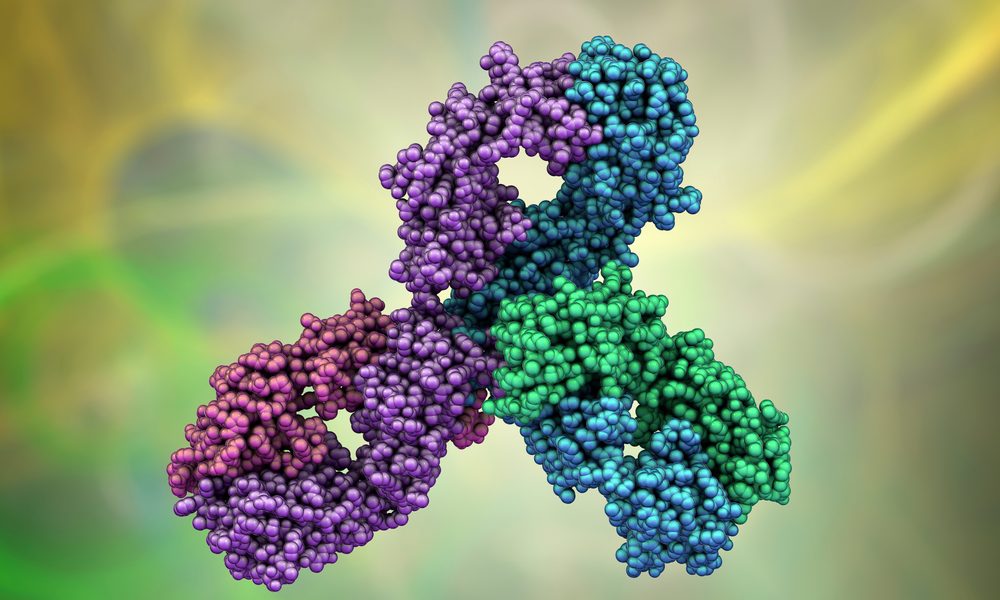
What is Keytruda & Does It Actually Treat Brain Cancer?

Glioblastoma is among the deadliest forms of cancer. The median survival time of people diagnosed with this type of brain cancer ranges from merely 15 to 16 months, and that’s already with treatment.
Now, there might be the slightest ray of hope with a new study that has proven beneficial when it comes to extending the life of glioblastoma patients. This might just be the kind of miracle the world has been waiting for!
Research with hope!

magnetic resonance image (MRI) of the brain; Shutterstock ID 118491940; PO: today.com
New research shows that an immunotherapy drug might extend the life of people who are suffering from glioblastoma if given to them before the surgery to remove tumors. Researchers found out that by administering the drug before surgery, the dormant T cells within tumors get activated, which helps to extend people’s lives.
People who received the medication before surgery lived for an average of 417 days. Meanwhile, those who took the drug after only lived for 228 days. There is a hope that cancer might be cured soon, as we at the very least have a foot in the door.
Uncovering tumors
Keytruda, which is sold as pembrolizumab, is an antibody that hinders PD-1, a “checkpoint protein,” from restraining the operation of the body’s cancer-fighting T-1 cells.
To defend themselves from being attacked by the immune system, glioblastomas and other cancerous tumors often employ PD-1. It has been shown that immunotherapy is efficient in treating cancer in other areas of the body. Yet, the same cannot be said with brain cancers.
Brain tumors are very challenging to treat because the immune response in the brain tends to be naturally suppressed. In addition to that, patients can have a weakened immune response after being treated with radiation or chemotherapy. The cancerous tumor also produces immunosuppressants that affect not just the brain but also the entire body.

David Tadevosian/Shutterstock
Immunotherapy, a brighter future?
In the future, immunotherapy might replace traditional chemotherapy and radiation treatment. In another research, the researchers experimented by directly injecting the T-cells into the tumor areas. It was noted that how T-cells work on tumors aren’t the same from one glioblastoma patient to another since several different patients were tested.
Conclusion
Immunotherapy drugs like Keytruda administered to brain cancer patients prior to the removal of tumors seem to be more efficient than treating them after removing the tumor. Researchers believe that preventive treatment may aid in triggering an immune response versus cancerous cells.
The study shines a ray of hope for treating, and ultimately curing, glioblastoma, a lethal form of cancer with only a few effective treatment options as of today. However, more study is needed to verify the current findings to truly discover what kinds of immunotherapy will work best for every patient.
More in Health & Well-being
-
`
How to Control Anger – Practical Tips and Techniques
Anger is a complex emotion that everyone experiences from time to time. It can arise from a variety of triggers and,...
August 23, 2024 -
`
How to Tell if a Bipolar Man Loves You – Key Signs and Indicators
Relationships, especially those involving someone with bipolar disorder, can be challenging but rewarding. The highs and lows characteristic of bipolar...
August 15, 2024 -
`
How to Prepare for All You Can Eat Sushi Buffets – Tips & Tricks
Are you ready to enjoy a sushi buffet and make the most out of your dining experience? If you’re a sushi...
August 9, 2024 -
`
How Does the Brain Play Into Mindset? The Power of the Mindset
How does the brain play into mindset? Within the brain lies the foundation of our mindset, shaping our perceptions and guiding...
August 3, 2024 -
`
How Often Should You Meditate to Achieve Your Goals
How often should you meditate to achieve its benefits? This question is often asked by those looking to incorporate this practice...
July 25, 2024 -
`
How to Be a Better Wife? 10 Essential Tips
Marriage is a beautiful journey, a tapestry woven with moments of joy, tenderness, and perhaps even a few snags along the...
July 19, 2024 -
`
The Best Quotes About Shadow Self You Need to Read
The journey of self-discovery is incomplete without acknowledging the parts of ourselves that lurk in the dark—the shadow self. “Owning Your...
July 12, 2024 -
`
How to Make Your Wife Happy and Strengthen Your Bond
You’ve probably heard the age-old advice, “Happy wife, happy life.” But what does it really mean to make your wife happy?...
July 5, 2024 -
`
Top 6 Best Beaches in Lake Tahoe You Should Not Miss
Lake Tahoe is a gem nestled in the Sierra Nevada mountains, boasting some of the most breathtaking beaches you will ever...
June 28, 2024















You must be logged in to post a comment Login